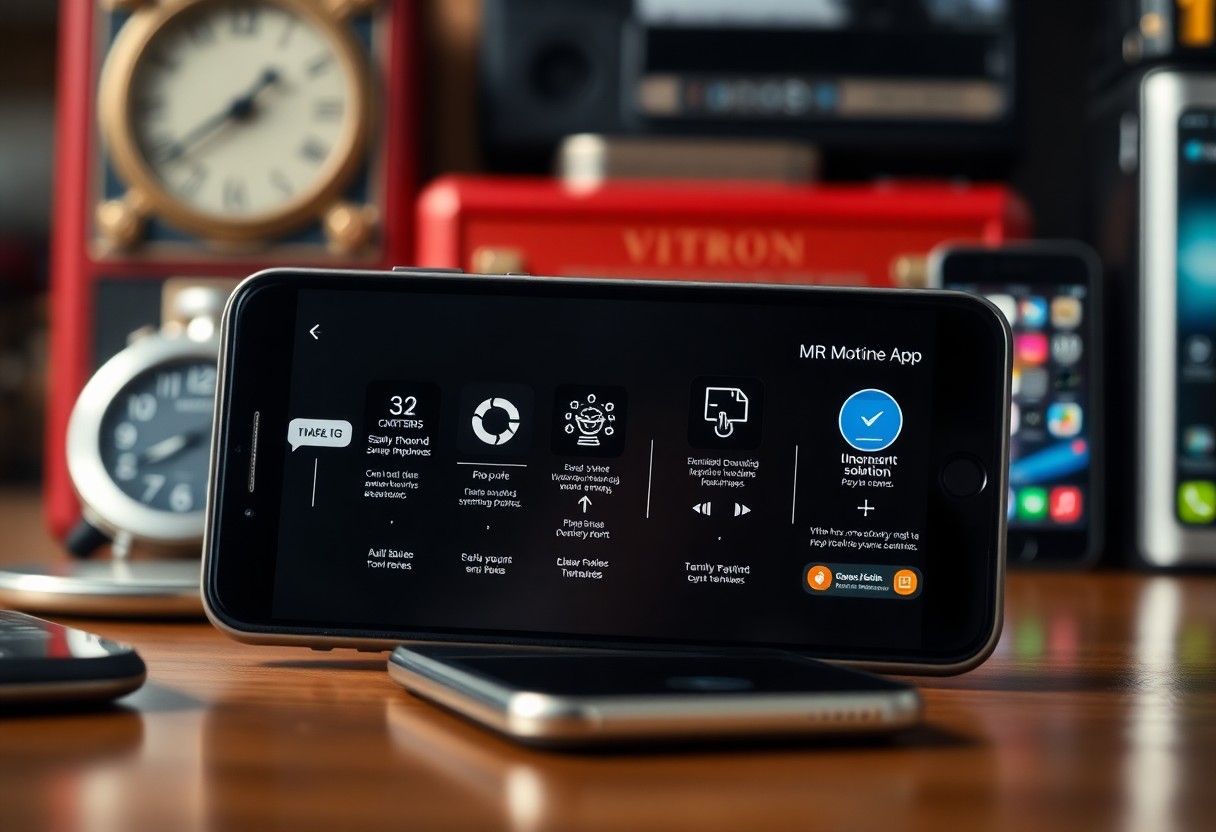As you navigate through your daily life, you likely rely on mobile apps to stay connected, informed, and entertained. You may wonder how these apps have transformed over time, from simple SMS services to sophisticated smart solutions. Your mobile device is now a gateway to a vast array of applications, and understanding their evolution can help you appreciate the innovation and progress that has led to the current state of mobile technology.
Key Takeaways:
- The development of mobile apps has undergone significant transformation, from simple SMS-based services to sophisticated smart solutions that integrate artificial intelligence, internet of things, and data analytics.
- Mobile apps have become an important part of daily life, with millions of people relying on them for communication, entertainment, education, and commerce, driving innovation and economic growth.
- The evolution of mobile apps has been shaped by advances in technology, changes in user behavior, and the increasing demand for personalized and seamless experiences, leading to the creation of more intuitive and interactive interfaces.
- Modern mobile apps prioritize security, privacy, and accessibility, incorporating features such as biometric authentication, end-to-end encryption, and inclusive design to protect users and provide equal access to information and services.
- The future of mobile apps is expected to be driven by emerging technologies like augmented reality, 5G networks, and machine learning, enabling the development of immersive, high-performance, and intelligent applications that transform industries and revolutionize the way we live and work.
The Dawn of Mobile Communication
A significant transformation in mobile technology marked the beginning of a new era, as you witnessed the emergence of mobile phones that could send and receive information beyond just voice calls. You saw the introduction of basic services that paved the way for more advanced mobile applications.
SMS Era and Basic Functions
Between the early 1990s and the mid-2000s, you experienced the rise of SMS, which allowed you to send short text messages to other mobile users, enabling basic communication on-the-go. You could access simple services like news updates, sports scores, and weather forecasts.
Early Mobile Applications (WAP)
Initially, you encountered early mobile applications built on the Wireless Application Protocol (WAP), which provided you with limited access to online content and basic internet services. You could browse simplified websites, check emails, and use basic online services.
Dawn of the WAP era brought you the first taste of mobile internet, allowing you to access online content, albeit with limitations. You had to navigate through cumbersome menus and wait for slow data transfers, but it marked the beginning of a new era in mobile communication, setting the stage for the development of more sophisticated mobile applications that would change the way you interact with your mobile device.
The App Store Revolution
Clearly, the introduction of app stores marked a significant shift in the mobile app landscape, and you can learn more about this transformation in The Evolution of Mobile Apps: 1994 to 2019. This revolution changed the way you discover and download apps, making it easier to access a wide range of mobile solutions.
Apple’s Game-Changing Platform
Above all, Apple’s App Store set the standard for modern app distribution, allowing you to browse and download apps with ease, and transforming the way you interact with your mobile device.
Android Market Emergence
The emergence of the Android Market, now known as Google Play, gave you more options for downloading apps, and this development had a significant impact on the mobile app ecosystem, enabling you to access a vast array of apps across different devices.
Hence, as you explore the Android Market, you’ll find that it offers a wide range of apps, from productivity tools to games, and its open nature has encouraged innovation, allowing developers to create unique solutions that cater to your diverse needs, and providing you with an unparalleled mobile experience.

Mobile App Development Phases
Your journey through the evolution of mobile apps starts with understanding the development phases, which have transformed significantly over time, as you can learn more about in The Evolution of Mobile Apps: From Concept to Reality, to create innovative solutions.
Native Applications
Above all, native applications were the first step in mobile app development, allowing you to create apps tailored to specific platforms, enhancing user experience and performance.
Cross-Platform Solutions
One of the significant advancements in mobile app development is the introduction of cross-platform solutions, enabling you to develop apps that can run on multiple platforms, increasing your reach and efficiency.
CrossPlatform solutions have become increasingly popular, as they allow you to share code across different platforms, reducing development time and costs, and enabling you to maintain a consistent user experience across various devices, making it an attractive option for your mobile app development needs.
Social Media Integration
Despite the initial simplicity of mobile apps, you soon found yourself immersed in a world of social media integration, where your favorite platforms became an integral part of your mobile experience.
Communication Revolution
Above all, the rise of social media on mobile devices sparked a communication revolution, allowing you to connect with others across the globe, share your thoughts, and stay updated on current events.
Social Apps Impact
Beside the numerous benefits, social media integration has also had a significant impact on your daily life, influencing the way you interact with others, consume information, and even shape your opinions.
This impact is evident in the way you use social apps to navigate your daily routine, from checking news feeds to sharing personal updates, and it has become an important part of your mobile experience, shaping your online presence and interactions, and allowing you to stay connected with others in a way that was previously unimaginable.
Modern App Ecosystems
Not surprisingly, the modern app ecosystem has transformed the way you interact with your mobile devices, offering a wide range of services and features that cater to your needs.
Cloud Integration
Almost any mobile app you use today is connected to the cloud, allowing you to access your data and content from anywhere, and enabling seamless synchronization across your devices.
AI and Machine Learning Features
Alongside the growth of mobile apps, you’ve likely noticed the integration of AI and machine learning features, which enable your apps to learn your behavior and provide personalized experiences.
Due to the advancements in AI and machine learning, you can now enjoy features such as predictive maintenance, intelligent assistants, and tailored recommendations, making your mobile experience more intuitive and engaging, and as you explore these features, you’ll find that your mobile apps are becoming increasingly sophisticated and responsive to your needs.
Security and Privacy Evolution
Keep in mind that as mobile apps evolved, so did the threats to your personal data, leading to significant advancements in security measures.
Early Security Measures
Securing your information was a primary concern, and early security measures included basic encryption and passwords to protect your data.
Modern Data Protection
Along with the growth of mobile apps, modern data protection methods have become more sophisticated, utilizing advanced encryption, biometric authentication, and regular software updates to safeguard your information.
To further enhance your data protection, you can take advantage of features like two-factor authentication, secure password management, and regular backups, giving you greater control over your personal data and ensuring that your information remains secure in the face of evolving threats.
Summing up
So, as you reflect on the journey of mobile apps, you see how they’ve transformed from simple SMS to sophisticated solutions. You can learn more about The evolution of mobile marketing: From SMS and call centers to immersive experiences and how it impacts your business. Your understanding of this evolution will help you navigate the ever-changing mobile landscape and make informed decisions about your mobile strategy.
FAQ
Q: What sparked the evolution of mobile apps, and how have they transformed over time?
A: The evolution of mobile apps began with the introduction of SMS (Short Message Service) in the early 1990s, which allowed users to send and receive text messages. As technology advanced, mobile apps progressed from simple text-based services to more complex applications, including games, productivity tools, and social media platforms. The launch of the iPhone in 2007 marked a significant milestone, as it introduced a multi-touch interface and a dedicated app store, paving the way for the development of sophisticated mobile solutions. Today, mobile apps have become an integral part of our daily lives, offering a wide range of services, from entertainment and education to healthcare and finance.
Q: How have mobile apps impacted various industries, and what benefits do they offer to businesses and consumers?
A: Mobile apps have revolutionized numerous industries, including retail, banking, transportation, and healthcare. They provide businesses with a direct channel to engage with customers, offer personalized services, and increase brand loyalty. Consumers, on the other hand, benefit from the convenience, accessibility, and flexibility that mobile apps offer. With mobile apps, users can shop online, manage their finances, book tickets, and access a wide range of services on-the-go. Additionally, mobile apps enable businesses to collect valuable data and insights, which can be used to improve their services, enhance customer experience, and drive growth.
Q: What does the future hold for mobile apps, and how will emerging technologies like AI, AR, and IoT shape their development?
A: The future of mobile apps is exciting and promising, with emerging technologies like Artificial Intelligence (AI), Augmented Reality (AR), and the Internet of Things (IoT) expected to play a significant role in their development. AI-powered mobile apps will enable more personalized and intuitive user experiences, while AR will revolutionize industries like education, entertainment, and retail. The integration of IoT will connect mobile apps to a wide range of devices and sensors, enabling seamless interactions and creating new opportunities for innovation. As technology continues to advance, we can expect mobile apps to become even more sophisticated, secure, and user-friendly, transforming the way we live, work, and interact with each other.



